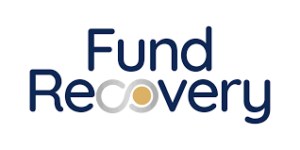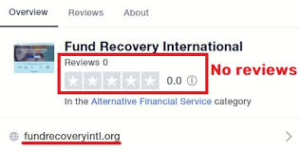SINGAPORE, Feb 28: In a recent parliamentary session, lawmakers were informed that the Singapore government is actively exploring various proposals to compensate victims of scams. Minister of State for Home Affairs, Sun Xueling, shared insights into the complexities involved in establishing a consolidated fund aimed at helping those affected reclaim their lost funds.

The staggering statistics reveal that in 2024 alone, Singaporeans fell victim to scams totaling SGD 1.1 billion (approximately USD 822 million). Despite the efforts of the Singapore Police Force, which successfully recovered over SGD 182 million of these losses, the net financial impact remains significant, with victims still facing a combined loss of about SGD 930 million.
As discussions continue, the government is weighing the operational challenges that come with creating a centralized compensation system. This initiative aims not only to provide financial relief but also to restore trust among citizens in an increasingly digital economy where scams are becoming more prevalent. The urgency of this matter reflects the broader societal implications, as the emotional toll on victims can be just as devastating as the financial losses incurred.
During a recent parliamentary session, Minister Sun addressed a pressing inquiry from a lawmaker regarding the government’s stance on creating a restitution fund for victims of scams. This proposed fund would be financed through the confiscated proceeds from ongoing money laundering investigations.

Minister Sun explained that while the Anti-Scam Centre has successfully recovered significant amounts of money, there remains uncertainty about the origins of these funds. Not all recovered assets can be definitively traced back to scam operations, as reported by Channel News Asia.
She elaborated on the complexity of the situation, noting that many syndicates involved in scams often engage in various other criminal activities. These can include illegal money lending and other forms of financial fraud.

This multi-faceted nature of their operations complicates efforts to allocate recovered funds specifically to scam victims. As discussions continue, the government is grappling with how best to support those affected while navigating the intricacies of crime finance. The potential establishment of a restitution fund remains under consideration, as officials weigh the benefits against the challenges presented by these intertwined criminal enterprises.
“There could be other proceeds that pertain to different forms of crime,” she explained, her voice tinged with concern. “This means there are additional victims who might feel entitled to those recovered funds as well.”
The complexity of tracking the origins of stolen money is a daunting challenge. Sun elaborated on this issue, highlighting the difficulties posed by the commingling of funds.
“Once money is mixed together, it becomes nearly impossible to trace,” she said, shaking her head in frustration.

This problem intensifies in cases involving cryptocurrency, where transactions can be obscured by layers of anonymity. “Determining which victim a particular dollar belongs to is often a near-impossible task,” she remarked.
As the conversation turned to the idea of a consolidated restitution fund, the minister of state expressed serious reservations. “In such cases, it would be incredibly challenging to identify which victim has a legitimate claim to the recovered money,” she cautioned.
The implications of this complexity weigh heavily on those seeking justice, leaving many victims in limbo.

The amount of money recovered from recent scams is only a small fraction of the total losses incurred, as emphasized by Sun. She highlighted the stark reality that the number of claimants seeking restitution far exceeds the actual funds that have been recovered.
“There are going to be far more claimants for the monies than there are actually proceeds,” Sun remarked, shedding light on the daunting challenge facing victims. Even when some victims manage to recover a portion of their funds, it is likely to be just a “tiny fraction” of their original losses.
This situation is particularly disheartening for those who have suffered significant financial setbacks due to these scams. Law and Home Affairs Minister K Shanmugam recently addressed this issue, noting that assets surrendered to the state from the SGD 3 billion (USD 2.2 billion) money laundering case are being systematically liquidated.
As the government works to return these assets to its coffers, many victims are left grappling with the harsh reality of their financial losses. The process may take time, but for those affected, every bit recovered represents a glimmer of hope amidst the overwhelming losses they have endured.
As of December 2024, a significant liquidation effort was underway, marking a pivotal moment for the government. A total of 54 properties, ranging from luxurious estates to modest homes, had been sold off in a strategic move to bolster the nation’s finances.

In addition to the real estate, 33 vehicles—each with its own story and history—were also liquidated. These included everything from sleek sedans to rugged SUVs, all contributing to the growing revenue stream.
Furthermore, 11 exclusive country club memberships were relinquished, symbolizing a shift in priorities as the government sought to redirect resources toward more pressing needs.
The proceeds from this extensive liquidation of non-cash assets would be channeled directly into the government’s consolidated fund. This fund is crucial for financing public projects and addressing urgent social issues.
During a recent parliamentary session, the announcement was met with mixed reactions, highlighting the complexities of such financial strategies. Some lawmakers praised the initiative as a necessary step towards fiscal responsibility, while others raised concerns about the long-term implications for community assets.

As the dust settled on these transactions, the government was poised to make strategic investments that could redefine its economic landscape. The road ahead was uncertain, but the commitment to transparency and accountability remain unwavering.
Maxthon: Your Reliable Ally in the Digital Realm
In an era where the internet is deeply woven into the fabric of our everyday existence, safeguarding our online identities has never been more crucial. Imagine setting off on an exhilarating expedition through the vast and mysterious expanse of the web, where every click unveils a treasure trove of information and thrilling encounters. However, lurking within this expansive digital domain are hidden perils, poised to jeopardize our personal information and security. To successfully traverse this intricate online landscape, it is imperative to choose a browser that prioritizes user safety above all else. Enter Maxthon Browser—your steadfast companion on this adventure—and the cherry on top? It’s entirely free of charge.

Maxthon Browser: Crafted for Adventurers on Windows 11
For those who have embraced the wonders of Windows 11, Maxthon Browser distinguishes itself from conventional web browsers through its unwavering dedication to your online privacy. Picture it as a vigilant guardian, always on the lookout for the myriad threats that inhabit the digital sphere. Armed with a suite of integrated tools like ad blockers and anti-tracking mechanisms, Maxthon tirelessly endeavors to safeguard your online persona. As users journey through the internet on their Windows 11 devices, these protective features form a formidable shield against intrusive advertisements while preventing websites from monitoring their browsing habits.
As individuals navigate the ever-evolving digital landscape on their Windows 11 systems, the importance of Maxthon’s relentless commitment to privacy becomes increasingly apparent. Utilizing cutting-edge encryption technologies, it ensures that sensitive data remains protected during your online escapades. Thus, as users plunge into the uncharted waters of cyberspace, they can embark on their digital quests with confidence, assured that their personal information is secure from prying eyes and harmful intrusions.
